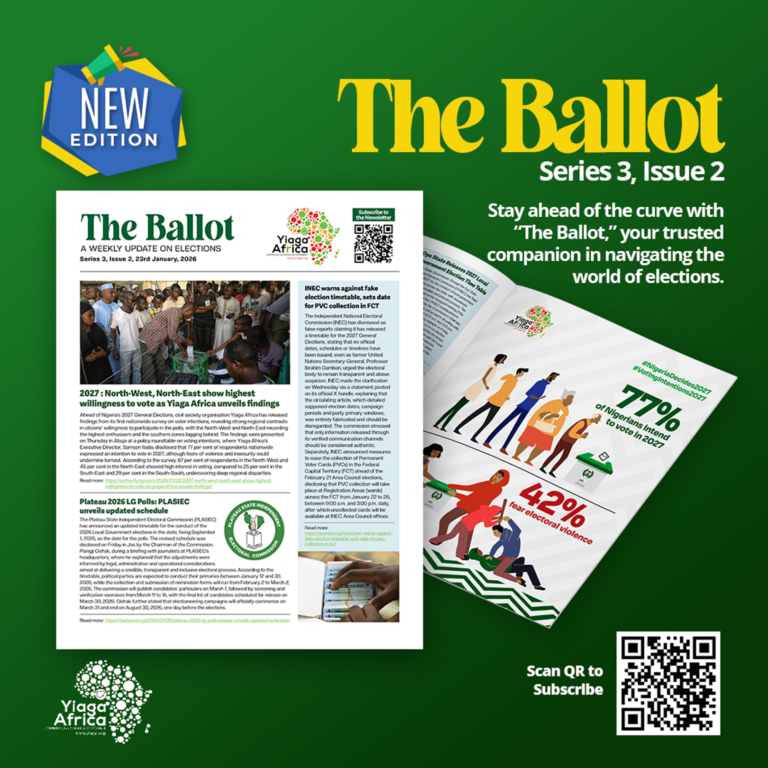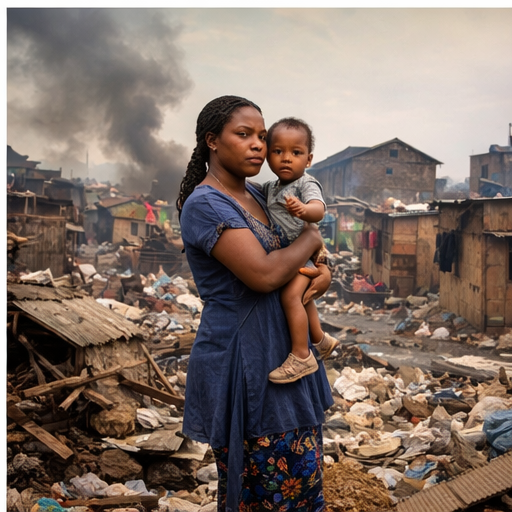
By Nankpak Cirfat
As Nigeria navigates the uncharted waters of a state of emergency in Rivers State, the nation finds itself at a crossroads. President Bola Tinubu’s decision to invoke Section 305 of the 1999 Constitution as amended, suspending Governor Siminalayi Fubara and the state’s legislative assembly led by Martin Amawhule over alleged political instability and constitutional breaches, has sparked intense debate and raised fundamental questions about governance, democracy, and the rule of law.
The political crisis in Rivers State has been brewing since October 2023, when disagreements between FCT minister Wike and Governor Siminalayi Fubara became public knowledge, with the state’s House of Assembly caught in the middle. Despite efforts by President Tinubu and other stakeholders to mediate, the situation continued to deteriorate, culminating in the declaration of a state of emergency on the 18th day of March 20, 2025 by the president.
Meanwhile, many have argued that the suspension of the elected officials is unconstitutional, as the Constitution does not grant the President the power to remove them under a state of emergency. The Nigerian Bar Association (NBA) has labeled this move a violation of democratic principles, further fueling concerns among Nigerians like me about the erosion of democratic norms and the potential for authoritarianism.
This is because the removal of Governor Fubara and the state legislature shifts power to a federally appointed administrator, undermining local democratic processes and autonomy.
For many leaders of thought, the federal government’s increased control over state affairs is not just about Rivers but could transcend to other states, setting a dangerous precedent for centralized authority.
While the president has clearly cited the unresolved feud between the current and former governor as part of reasons for the political tension in the state, his leading critics have also accused him of taking sides with the FCT minister, who served as governor of Rivers State for eight years without interference. For them, it is unfortunate that the president has chosen to penalize the governor and the state House of Assembly while the main architect of the political conflict in the state, now a cabinet member, walks free.
As the African proverb goes, “When two elephants fight, it is the ground that suffers.” This means that the state of emergency could have profound effects on socioeconomic activities in Rivers State. Already, there are fears that the declaration may lead to renewed pipeline sabotage. Though the federal government has announced the deployment of 10,000 security personnel to the region, any student of history would know that the militarization of the Niger Delta did little to curb crude oil theft and pipeline vandalism until the introduction of amnesty by former President Yar’Adua.
While the declaration of emergency in Rivers State might not be a novel act, Nigeria has a history of declaring states of emergency in response to crises. For instance, In 1962, the first state of emergency was declared in the Western Region due to a severe political crisis within the Action Group (AG), involving a feud between Chief Obafemi Awolowo and Chief Samuel Ladoke Akintola. This led to violent clashes and legislative chaos, prompting Prime Minister Tafawa Balewa to impose emergency rule.
In 2004, President Olusegun Obasanjo extended the “gesture” to my beloved state and declared a state of emergency in Plateau State following ethno-religious violence, suspending the governor and state assembly while appointing Major General Chris Alli as administrator. Similarly, in 2006, a state of emergency was declared in Ekiti State after the controversial impeachment of Governor Ayo Fayose, leading to unrest and a breakdown in governance. Brigadier General Adetunji Olurin was appointed as administrator.
Again in 2013, the then President Goodluck Jonathan declared a state of emergency in Adamawa, Borno, and Yobe states to combat Boko Haram insurgency. Unlike previous declarations, he did not suspend governors or assemblies but directed security forces to derogate on some rights. These precedents highlight the use of emergency powers in Nigeria to address political and security crises, often with mixed outcomes.
While the declaration of a state of emergency is not be a Nigerian factor, Internationally, countries like Turkey and Egypt have also used emergency powers to address political crises, often with mixed results. Turkey’s emergency rule following the 2016 coup attempt stabilized the country but led to human rights abuses and erosion of democratic institutions. Egypt’s frequent invocation of emergency laws has resulted in a highly centralized state with limited political freedoms.
Some may argue that the state of emergency is necessary to restore order and stability in Rivers State. However, this perspective overlooks the potential long-term damage to democratic institutions and the risk of setting a precedent for future actions and that is why it is important to balance security and Political needs with the preservation of democratic principles, ensuring that emergency measures are temporary and do not undermine the rule of law.
My Constituency, the media during this period, plays a key role in shaping public opinion. Firstly by providing accurate and timely information, the media acts as a trusted source, especially at the local level, disseminating details about public safety and addressing public concerns. The media can also influence government actions by exposing inefficiencies and ensuring that political interests do not overshadow the wider population’s needs.
Also, the media facilitates discussions on appropriate measures to counter the causes and effects of a crisis, encouraging citizen participation in discussions to increase society’s resilience. However, the media must check information thoroughly to prevent misinformation and polarization, ensuring responsible and accurate reporting to avoid unnecessary panic while truly maintaining its status as the fourth estate of the realm.
At this point, It is imperative that as Nigeria navigates this reality for her to devise and implement measures that ensure the preservation of democratic principles while addressing the pressing challenges facing Rivers State. Constitutional Reform is essential to clarify the powers of the President during a state of emergency if need be for the declaration in the first place and preventing future infringements on democratic governance.
Strengthening Institutions is another key step. The judiciary and legislative arm of government must remain active and alive to check executive power, ensuring that the National Assembly plays its role in overseeing emergency declarations. This includes maintaining transparency and accountability in decision-making processes, which are necessary for restoring public trust in government institutions.
Another point to note is that dialogue and reconciliation are indispensable for resolving the underlying issues in Rivers State. Efforts should be made to engage in inclusive dialogue with all political stakeholders to restore democratic governance as soon as possible in the oil rich Rivers state.
I am of the opinion that as Nigeria navigates this challenging period, it is essential to balance the need for stability with the preservation of democratic principles. The path forward requires careful consideration of constitutional limitations, lessons from international examples, and a commitment to strengthening democratic institutions. Ultimately, the success of this intervention will depend on its ability to restore peace, ensure accountability, and pave the way for sustainable governance in Rivers State and beyond.








